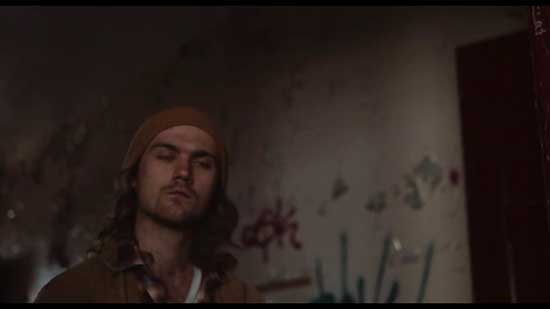Watch ‘Fairytale’ Review: Alexander Sokurov’s Deepfaked Historical Reunion

Table of Contents
“Watch Online ‘Fairytale’ Review: Alexander Sokurov’s Deepfaked Historical Reunion”
“‘Fairytale’ Review: Alexander Sokurov’s Deepfaked Historical Reunion”
That they talk and talk and talk and talk, while ultimately saying very little, is perhaps the driving joke of “Fairytale,” a film of considerable technical expertise and artistry that uses gauzy deepfake technology to reanimate these blustering ghosts of the past — only to present them as vain, droning dullards, each hung up on petty personal fixations that torment them far more than their larger political actions. Sokurov’s Hitler, for example, never speaks of the Holocaust, but does harp on his regret over neglecting to burn Paris to the ground; he’s even more consumed by his failure ever to score with Richard Wagner’s niece. (Churchill assures him that Eva Braun was a better catch.) Just because you make history, “Fairytale” suggests, doesn’t mean you learn anything from it.
This is an amusing but rather thin thesis on which to hang an entire film, and even at just under 80 minutes, “Fairytale” too often appears to be running (or rather drifting) in place. The main competition at Locarno is an odd place to unveil this misfit curio, which feels less naturally suited to a cinema than to a gallery, perhaps across multiple screens, where viewers could determine their own path and pace through its disorienting, multilingual layers of nonsense conversation. That said, after seven years away from feature filmmaking — he last hit the festival circuit with his densely inventive, Louvre-focused quasi-documentary “Francofonia” — it’s a pleasure to see Sokurov back in such mischievous form. His name alone should secure the film limited theatrical play, though specialist streaming platforms may be more accommodating.
The tone is set straight out the gate, as we’re introduced to Stalin lying in state, grumbling aloud that he hasn’t died and never will. Across from him, nobly wounded on a plainer slab, is Jesus Christ: “Get up, you idler,” Stalin admonishes him, before setting out himself on a tour of this gray, charcoal-smeared netherworld, where ancient classical ruins give way to bare apocalyptic wastelands, and hordes of moaning civilian souls sometimes blur and coalesce into surging tidal waves of spiritual unrest. Jesus, wisely enough, doesn’t follow: Stalin (voiced by Vakhtang Kuchava), Hitler (Lothar Deeg and Tim Ettelt), Mussolini (Fabio Mastrangelo) and an anxious, dithering Churchill (Alexander Sagabashi and Michael Gibson) are the primary quartet around whom this afterlife is built — Napoleon puts in only a fleeting appearance — and if their circular, unresolved sniping is any indication, none will find expiation any time soon.
Together, they alternately trade juvenile insults (Stalin “smells of sheep,” complains Hitler), congratulate each other on jobs well done and plan for a future that has passed them by. “Everything will return, all I need is to cross the Rubicon,” insists Mussolini. There’s more than a hint of dementia to their murmurings: Churchill, who gets away with a gentler but more woebegone portrait than the dictators surrounding him, gets occasional passages of bluster (“I offer nothing but tears, sweat and death,” he says, in a defeated rewrite of his most famous speech) but frets rather more obsessively over his need to call the Queen. Sokurov offers little in the way of direct commentary on the lives and legacies he singles out, other than to render them absurd without power, leveled and disarmed by death.
If much of “Fairytale,” then, is in defiantly bad taste, its irreverence is balanced out by the austere, elaborate monochrome beauty of its imagery and montage. Intricate CGI work gives supple life and movement to archival photos and footage of these endlessly represented men, all of whom here acquire a distinctive physical aura and gait. Their bodies blend seamlessly into a typically Sokurovian mise-en-scène of simultaneous serenity and chaos: a silvered, milky in-between realm, where the composite tracing-paper quality of the visuals is matched by a feverish soundtrack of overlapped dialogue, clashing languages and snatches of orchestral music heard from a world away. As visions of purgatory go, it’s an eerily beautiful one — not that its occupants here can take their minds off themselves for one minute to consider the view.
If you liked the article, do not forget to share it with your friends. Follow us on Google News too, click on the star and choose us from your favorites.
For forums sites go to Forum.BuradaBiliyorum.Com
If you want to read more Like this articles, you can visit our Watch Movies & TV Series category




